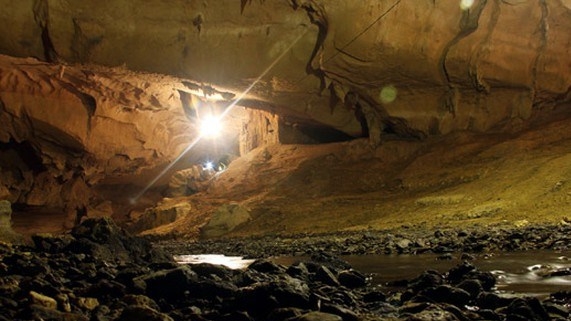Scientists have discovered pre-historic drawings dated 3,000 years ago in an ancient cave in the north central province of Nghe An.

Tham Chang cave in Nghe An (Photo: Nghe An newspaper)
During an archaeological verification trip in February in Quy Chau district, a delegation of the Vietnam Institute of Archaeology found the pre-historic murals in Tham Chang cave in Thuan Chuan commune.
The cave was discovered by the institute in 2015, said Assoc. Prof., Dr Trinh Nang Chung, head of the archaeological team, adding that based on stone tools found inside, the cave is believed to form during the Old Stone Age.
This is not the first time that ancient art has been discovered in caves in Nghe An province.
In the 1940s, French archaeologists found drawings in a cave in Chau Phong commune, about 15km south of Quy Chau town. In addition, human-figured rock carvings were recently detected in a cave in Anh Son district’s Hoa Son commune.
The discoveries in Nghe An caves, along with art products found in the provinces of Hoa Binh, Ha Giang and Quang Binh, indicate cave arts were practiced by people in Vietnam in the prehistoric time.
Further research on this kind of ancient art is needed.
Also during the trip, archaeologists discovered a new relic site of Hoa Binh Culture dated nearly 10,000 years ago in the Stone Age, which is Tham Moi cave in Quy Chau district. Stone working tools found in the cave show fundamental traits of the art of Hoa Binh Culture.
Local authorities have devised plans to conserve the relics.